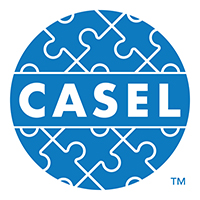2021 SPEAKER BLOG SERIES
Check back soon to read more blog entries from our speakers.
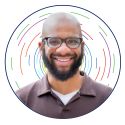
Hear from Dr. Daren Graves
Associate Professor
Simmons University
What is one way that social and emotional learning supports young people to be empowered to take action and be caring, contributing members of society?
Social and emotional learning can support young people to be empowered to take action and to be caring and contributing agents of change in a multicultural and multiracial society by helping them develop positive racial identities. Young folks of all races need to be able to see their own identities as connected to different communities (historical and contemporary) and traditions of disrupting systems of oppression. They need to see these community legacies as one of the many beautiful things that we have created in our endeavors to dream new worlds that are more just and equitable.
In this moment, why is it critical to lift up and engage in these discussions?
Whether we like it or not, young people are always learning about systems of inequality through their everyday lived experiences in their schools, communities, and homes. Sadly, they often end up learning about these systems in very informal and problematic ways. We are in the midst of many public conversations and reckonings around inequity. This means the onus is even higher on adults to help our young people make sense of these issues and ultimately take action against them.
Offer attendees a sneak peek at what they can expect from your session at the SEL Virtual Summit.
During the keynote I will deliver we will hear the stories and voices of young people. They will help us move past the magical thinking many of us have about young people. You know, the notion that we need to put our hope in young people to end up solving our big societal problems. I believe this too, and I know that it will take an appropriate measure of guidance from adults to scaffold a process for young people to analyze social forces and take action against them. The keynote will hopefully help adults realize what kinds of and how much guidance they should offer.
What is one article, podcast, book or other resource you’d recommend to those joining us for the SEL Virtual Summit?
I’d recommend “Critical consciousness: A key to student achievement.” in Phi Delta Kappan by Dr. Aaliyah El-Amin.

Hear from Dhruv Pai
Student
Montgomery Blair High School
What is one way that social and emotional learning supports young people to be empowered to take action and be caring, contributing members of society?
Social and emotional learning helps us develop self-control, learn to communicate with others effectively, and learn problem solving techniques. This can make us more empathetic, respectful, and culturally responsive while being contributing agents of change in the society.
In this moment, why is it critical to lift up and engage in these discussions?
In our current technology world with less face-to-face social interaction, it is very important to learn how to navigate social situations, resolve conflicts, and show respect toward others. If we as students do not learn these skills at an early age, we will definitely struggle in our work life and in a future career.
Offer attendees a sneak peek at what they can expect from your session at the SEL Virtual Summit.
At the youth speaker session, we will be discussing tools and strategies for building tomorrow together. The session will work through questions I raised: What are ways in which a young person can be scaffolded to move from a mindset of “volunteer” to “community service”? Where and how does the shift to “agency” occur? What can adults (and other youth) do to help with that transition, and what structures might they set up to facilitate a move to agency to make the school, community, and the world a better place?
What is one article, podcast, book or other resource you’d recommend to those joining us for the SEL Virtual Summit?
https://soundcloud.com/education-next/ep-158-april-10-2019-supporting-social-emotional-development-boost-academic-success I enjoyed this podcast as the speaker explains why social and emotional learning is equally important in the academic mission of schools, and how SEL learning can prepare school students for adult success.
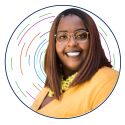
Hear from Aija Simmons
Program Manager of Social and Emotional Learning
Oakland Unified School District
What is one way that social and emotional learning supports young people to be empowered to take action and be caring, contributing members of society?
Social and emotional learning supports students with developing a positive sense of self and supports them with seeing themselves and other members of their identity groups as agents of change. In the school context, in particular where transformational SEL is thriving, students are also being supported to maintain and even deepen their own sense of self in contexts with members of other identity groups. We should be ensuring that all students are invited to advocate for their own needs while understanding the values and needs of others in the group. Transformational SEL also invites educators to be reflective and responsive when students are utilizing their agency in response to unsafe or oppressive conditions as they work themselves to be agents of change.
In this moment, why is it critical to lift up and engage in these discussions?
We are in a moment unlike any other, where our global citizenship is so critical to understand. Building the relationship skills necessary for collaborative and critical conversations should be an essential part of the work of schools. So many school visions end in having students be productive and engaged citizens. This is not going to happen accidentally. Schools should be students’ first opportunity to engage as change agents through participation in authentic decision making in their classrooms and school communities, as preparation for the larger societal conversations they will be having later on.
Offer attendees a sneak peek at what they can expect from your session at the SEL Virtual Summit.
Beginning with identity and belonging as the foundation, our session will explore educator strategies and practices that support students to participate as change agents at school and in society. We will think about the ways students engage in identity affirmation both individually and collectively and how educators facilitate that exploration with groups of students to surface the commonalities, beliefs, and values of the group, in order to establish a strong sense of belonging.
What is one article, podcast, book or other resource you’d recommend to those joining us for the SEL Virtual Summit?
In the early stages of the pandemic, I was invited into a book discussion of My Grandmother’s Hands by Resmaa Menakem. Neuroscience talks about mirror neurons and our body’s response to other bodies. Resmaa’s book dives deep into the embodied ways we respond to other bodies and how some of those responses are racialized. It made me think so much deeper about how I “show up” in space and provided many strategies for agency over my body responses and my own healing.
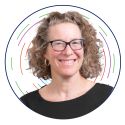

Hear from Emily Ozer and Brian Villa
Professor and Research Project Director
University of California, Berkley School of Public Health
What is one way that social and emotional learning supports young people to be empowered to take action and be caring, contributing members of society?
As we discuss in our session, SEL can support young people in developing the communication, team-building, and emotional skills that can help their work as youth researchers and change agents because this work brings up many challenges in working together with peers and in having complex and challenging exchanges with adults. SEL can also help young people understand their research topics, social context, and identities in a more critical and nuanced way, strengthening their Youth-led Participatory Action Research (YPAR) work.
In this moment, why is it critical to lift up and engage in these discussions?
Young people are standing up and making change in their communities and the world in relation to climate change, racial justice, gun violence, and many other pressing challenges. A key question for us as adults is how do we hear and support young people in developmentally- and politically-sensitive ways as they do this work? How do young people want to be heard? And how do we look critically at our own K-12 settings and how they and we can do better?
Offer attendees a sneak peek at what they can expect from your session at the SEL Virtual Summit.
When young people lead research on the issues they care about, they turn inquiry and analysis into civic action. Our session will explore how YPAR, and other youth empowerment approaches can work in complementary ways to create opportunities for promoting young people’s SEL skills and overall well-being. We will share two illustrative cases that detail YPAR integration within a community-based organization and school-based settings.
What is one article, podcast, book or other resource you’d recommend to those joining us for the SEL Virtual Summit?
Some of the themes we discuss in our session are explored in this recent brief co-authored by Ozer, Shapiro, and Duarte.
Ozer, E. J., Shapiro, V. B., & Duarte, C. d. P. (2020). Opportunities to strengthen SEL impact through Youth-led Participatory Action Research (YPAR). University Park, PA: Edna Bennett Pierce Prevention Research Center, The Pennsylvania State University
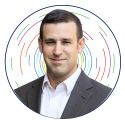
Hear from Scott Seider
Associate Professor
Boston College
In this moment, why is it critical to lift up and engage in these discussions?
This is a critical moment to lift up and engage these discussions about SEL and Civic Learning because, when enthusiasm about SEL was taking off a few years ago, I think that some educators who were incredibly enthusiastic about qualities like grit and growth mindset unintentionally conveyed to their students that their ability to thrive was entirely dependent on their own internal qualities. Internal qualities absolutely matter a lot, but there are also external forces that influence our lives and communities. And learning how to navigate and, in some cases, resist and challenge those external forces is also crucial for young people to be able to thrive and transform our world.
Offer attendees a sneak peek at what they can expect from your session at the SEL Virtual Summit.
Our session will share promising practices through which educators and other youth-serving professionals can support young people’s developing critical consciousness of oppressive forces such as racism, sexism, and classism. A growing body of research suggests that such critical consciousness can offer youth “psychological armor” to resist the negative effects of these oppressive forces and strengthen their commitment to dismantling them.
